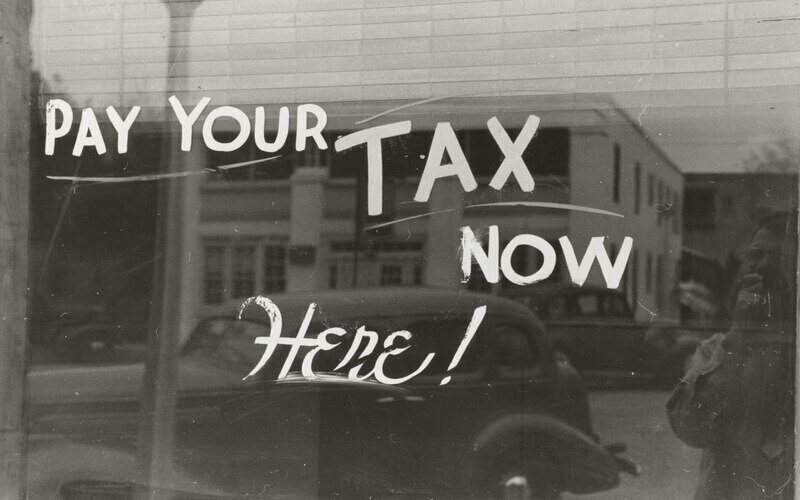In their tax returns, property investors must include information on their rental income as well as land and property taxes, capital gains tax (CGT) if applicable, and any deductions they're eligible for.
The onset of the coronavirus caused a huge shift for everyone, investors included, and 2020/21 saw multitude of legislation changes from the government such as working from home claims, JobKeeper and JobSeeker payments, grants and subsidies, lending deferrals, and more.
Leah Oliver, founder of Minnik Chartered Accountants, says getting investment tax returns right this year is essential.
"The Covid working from home calculations were made particularly complex, and in fact when compared across the four available methods*, the recommended 'made easier' method favoured the ATO over the taxpayer," Ms Oliver told Savings.com.au.
"There were assessable and non assessable relief components, the latter example being a cash flow boost for business. We actually saw in several instances this 'income' erroneously being treated as taxable.
"Tax planning with your advisor around the pandemic is crucial, as the tax savings we have been able to achieve for taxpayers have been quite substantial."
*See the different tax-claiming methods explained.
Ms Oliver also said the property market conditions seen in 2020 may change capital gains tax strategies for investors.
"Imagine you have a property in a Covid impacted area that is unlikely to recover in the long term because it's not in a position to withstand any such crisis to start with. Rather than hold on to this property, it may be time to think about the cost of maintaining it to no avail, and letting it go," she said.
"Due to a fall in value, this may result in a capital loss in the current financial year. You may have another property that you are looking to offload to release debt as part of your 'recession plan'.
"The gain on one absorbs the loss on the other, and right there is your capital gains tax minimisation strategy."
While everyone's conditions are unique, Ms Oliver said the underlying message is to "revisit your investment profile".
Related: How to sell an investment property
How much can investors get back in tax?
There are potentially thousands of dollars available in tax refunds for property investors each year, as Australia has fairly generous incentives.
National Australian Taxation Office (ATO) data found over three million people claimed deductions on rental properties in 2016/17 worth $47.4 billion.
That's an average of more than $15,000, and more recent research from Chartered Accountants showed depreciation alone is worth an average of $9,250 in claims.
Ms Oliver said how much investors can get back from their tax returns is specific to individuals, and is dependent on the extent of an investors assets, liabilities, and income.
"The important thing to remember is that tax saving strategies are secondary to wealth decisions," she said.
"Strong investments are key, applying tax strategies to the management of these investments result in various tax savings, which in turn support your wealth profile."
Top tips to prepare for this year's tax returns
To help property investors prepare for tax season in July and to get the most back from their investment as possible, Ms Oliver has put together the following exhaustive checklist:
- Understand how your property investments are performing, get your data in order by establishing and maintaining a personal account file
- Connect bank accounts, backdate feeds to 1 July, bring your bookkeeping up to date and reconcile all personal bank, card and loan accounts
- Upload supporting documents to your accounting file and attach to transactions, use an app for paperless efficiency and storage
- Review real estate agent rental statements for accuracy.
- Ensure all deductions are included in rental statements, e.g.advertising for tenants.
- Obtain annual, bi annual, or quarterly statements for body corporate rates and levies
- Gather loan statements for geared properties to calculate interest and borrowing costs deductions
- Upload quarterly statements for council and water rates
- Upload annual statements for property insurances
- Ensure your property is registered with the revenue office and you have applied for an annual land tax notice of assessment
- Upload invoices and receipts from gardeners, cleaners, pest control etc.
- For holiday houses, include utilities electricity and gas, internet, replenishing of supplies and incidentals of running the business
- For relatively new or renovated properties (within 10 years), arrange a depreciation schedule with a quantity surveyor
- Ensure office related deductions in relation to your properties are being captured in your file - stationery, postage, telephone etc.
- Prepare details of unforeseen circumstances, like legal disputes or natural disasters
- If you are unsure of a claim, include it anyway, your accountant will advise.
- For properties purchased or sold during the financial year, upload copies of signed contract of sale, settlement statement, and legal invoices for capital gains tax purposes.
- For properties purchased during the financial year include the date the property became "available for rent"
- For properties sold during the financial year include a timeline of the life of the property, such as date ranges for principal place of residence vs investment property, periods of renovations etc.
"We recommend establishing and maintaining a personal accounting file for wealth management, planning and tax admin purposes," she said.
"If you're not into cloud services and you prefer to continue in paper mode, it comes down to a basic filing system. Request from your accountant or advisor an 'investor checklist' for tax time. Or prepare one yourself.
"Work through the checklist and compile your data. Contact suppliers for missing documents. Scan and file in order ready to send to your accountant at tax time."
Photo via The New York Public Library on Unsplash

Ready, Set, Buy!
Learn everything you need to know about buying property – from choosing the right property and home loan, to the purchasing process, tips to save money and more!
With bonus Q&A sheet and Crossword!



 Harry O'Sullivan
Harry O'Sullivan
 Bea Garcia
Bea Garcia
 Denise Raward
Denise Raward



